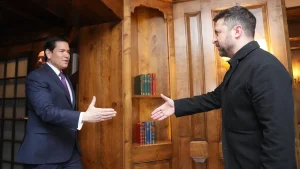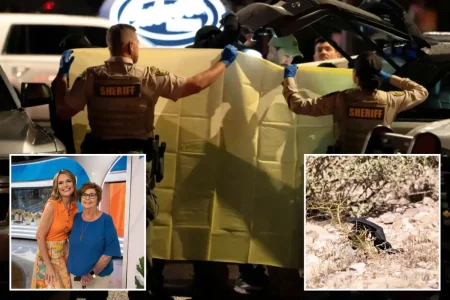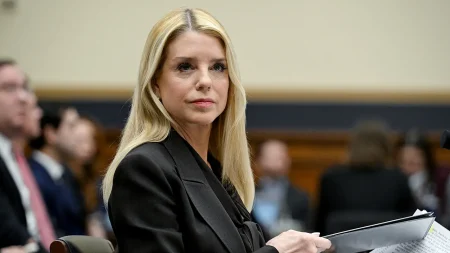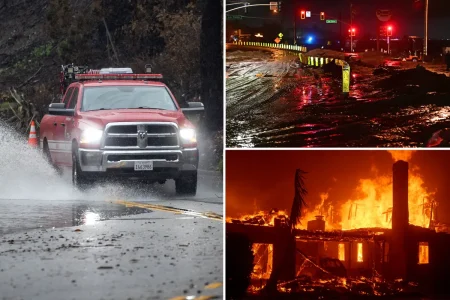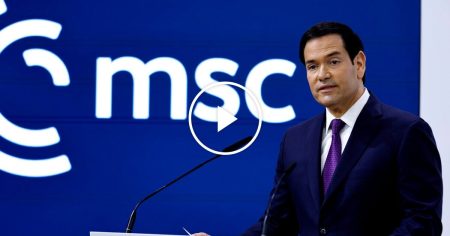Defending Europe’s Democratic Foundations: Why Ukraine Support Remains Critical Despite Political Uncertainty
Europe Faces Watershed Moment in Security Strategy as Democracy Faces Unprecedented Threats
In a stark warning that has reverberated through European capitals, a high-ranking military official has declared that European democracy and the rule of law stand at a critical juncture, threatened by forces that seek to undermine the continent’s post-Cold War stability. The general’s assessment comes amid growing concerns about Russia’s aggressive posture and the potential shifts in transatlantic relations that could emerge following upcoming U.S. elections. According to the senior military strategist, who spoke on condition of partial anonymity due to the sensitivity of ongoing security discussions, European nations must commit to providing Ukraine with comprehensive military, economic, and diplomatic support regardless of potential changes in American foreign policy priorities.
“We are witnessing a fundamental challenge to the European security architecture that has preserved peace for decades,” the general stated during a closed-door security forum in Brussels last week. “The principles that underpin our democratic institutions—transparency, accountability, human rights, and territorial integrity—are not abstract concepts but essential foundations that must be defended with concrete action.” The military leader emphasized that Europe’s approach to the Ukraine conflict represents more than just support for one nation; it embodies a defense of the rules-based international order that has allowed European democracies to flourish in the post-World War II era. Security analysts across the continent have increasingly echoed this sentiment, pointing to a pattern of information warfare, cyber attacks, and political interference that appears designed to fragment European unity and erode public trust in democratic institutions.
Evolving European Defense Strategy Requires Self-Sufficiency Amid Changing Alliances
The potential for significant policy shifts in Washington has accelerated discussions about European strategic autonomy—a concept that has gained traction but remained largely theoretical until recent geopolitical developments forced more urgent consideration. “European nations can no longer postpone difficult decisions about defense capabilities and strategic priorities,” noted Dr. Helena Kaufmann, director of the Institute for European Security Studies. “The dependency on U.S. security guarantees has created vulnerabilities that must be addressed through greater European coordination and investment.” This reassessment of European defense strategy comes as NATO faces internal debates about burden-sharing and as the European Union works to enhance its common defense framework.
Military experts point out that supporting Ukraine serves multiple strategic objectives for Europe beyond the immediate goal of countering Russian aggression. “By providing Ukraine with advanced defensive capabilities, European nations are effectively protecting their own security perimeter,” explained Colonel Jean-Pierre Dubois, a defense strategist at the Paris Center for Strategic Analysis. “Every Russian military asset neutralized in Ukraine potentially represents one less threat to NATO’s eastern flank.” The general’s call for continued support regardless of potential U.S. policy shifts under a possible Trump administration reflects growing recognition that Europe must develop greater capacity to secure its own interests, even if that means significantly increasing defense expenditures that have long remained below NATO’s recommended thresholds. Recent polling across major European nations indicates growing public awareness of security challenges, with 64% of respondents in a multi-country survey expressing concern about threats to democratic institutions and 58% supporting increased defense spending—figures that would have seemed improbable just a few years ago.
Pressure on Moscow: Multiple Dimensions of European Support Beyond Military Aid
While military assistance dominates headlines, the general emphasized that Europe must leverage every available mechanism to increase pressure on Moscow, creating what security experts call a “comprehensive deterrence posture.” This multi-faceted approach encompasses economic sanctions, diplomatic isolation, counter-intelligence cooperation, and strategic communication to combat disinformation campaigns. “Military aid represents just one dimension of the support package Ukraine requires,” said Dr. Aleksandra Novak, an expert in international relations at the University of Warsaw. “Equally important are efforts to maintain Ukraine’s economic viability, strengthen its democratic institutions, and counter Russian information warfare that targets both Ukrainian and European audiences.”
The economic dimension of this strategy involves not only traditional sanctions but also the challenging process of reducing European dependence on Russian energy resources—a vulnerability that Moscow has repeatedly exploited as a geopolitical lever. “Energy security and democratic security have become inseparable concepts,” noted Emma Lindberg, energy policy analyst at the Stockholm International Peace Research Institute. “Europe’s accelerated transition toward renewable energy sources and diversified supply chains represents a strategic imperative beyond environmental concerns.” Recent data supports this assessment, with European nations having reduced Russian gas imports by approximately 60% since 2021 while simultaneously expanding renewable energy capacity by 22%—demonstrating that strategic necessity can accelerate long-term policy objectives. The general’s comments suggest that this economic pressure must be maintained and intensified, even if it requires short-term sacrifices from European economies still recovering from pandemic disruptions and inflation challenges.
United European Front Essential Despite Internal Political Challenges and Divergent Interests
Perhaps the most significant challenge to implementing the general’s recommendation lies not in military capabilities or economic resources but in maintaining political cohesion across a diverse continent with varying security perspectives and economic interests. “The strength of Europe’s response depends entirely on its unity,” observed Political Scientist Dr. Thomas Rainer from the Brussels School of International Studies. “Moscow’s strategy has consistently focused on exploiting fissures between European nations, between Eastern and Western Europe, and between Europe and its transatlantic partners.” Recent elections in several European countries have demonstrated the political challenges of maintaining consistent foreign policy positions as populations grapple with economic pressures, migration concerns, and the rise of political movements skeptical of traditional security arrangements.
Despite these challenges, evidence suggests that European institutions have demonstrated unexpected resilience in coordinating responses to the security crisis. “What we’ve witnessed is remarkable consensus-building despite initial disagreements,” said Ambassador Maria Fernandez, former diplomat and senior fellow at the European Council on Foreign Relations. “Countries with historically divergent approaches to Russia—from the Baltic states to Mediterranean nations—have found common ground in recognizing the fundamental threat to European security principles.” The general’s assessment aligns with this perspective, emphasizing that Europe must continue developing institutional mechanisms that can sustain coordinated responses even through changes in national governments and shifting political winds. Recent agreements on joint procurement of defense systems, intelligence sharing protocols, and harmonized sanctions enforcement demonstrate concrete progress toward what some analysts describe as a more “geopolitically mature” European posture—one that combines principled positions with pragmatic implementation capabilities.
Future European Security Architecture Requires Strategic Patience and Long-term Commitment
The general’s most sobering message concerned the timeline for resolving the current security challenges facing Europe. “We must prepare European institutions and public opinion for a prolonged period of strategic competition that will require sustained commitment,” the military leader cautioned. This assessment contradicts earlier optimistic projections that suggested quick resolutions through either diplomatic breakthroughs or decisive military outcomes. Instead, security planners increasingly envision a scenario requiring what German Foreign Policy expert Dr. Klaus Hoffman terms “strategic patience”—the capacity to maintain consistent pressure through multiple electoral cycles, economic fluctuations, and competing global crises.
“Democratic societies face inherent challenges in sustaining long-term security policies because of electoral timelines and public opinion fluctuations,” noted Dr. Sophie Laurent, professor of international security at Sciences Po Paris. “Authoritarian systems can sometimes exploit this perceived weakness by simply waiting for democratic resolve to fracture.” The general’s emphasis on European self-reliance reflects growing recognition that the continent must develop institutional resilience to maintain consistent strategic positions despite inevitable political changes—including potential shifts in U.S. foreign policy priorities. Recent initiatives to establish multi-year defense funding mechanisms, create permanent European rapid reaction capabilities, and develop shared strategic infrastructure represent practical steps toward addressing this vulnerability. As Europe navigates this challenging security landscape, the general’s message emphasizes that the defense of Ukraine ultimately represents the defense of principles that define European identity itself: respect for sovereignty, commitment to democratic governance, and the rejection of force as a means of redrawing international boundaries. “What is at stake transcends traditional security calculations,” the general concluded. “It is nothing less than the future of the European project itself.”
